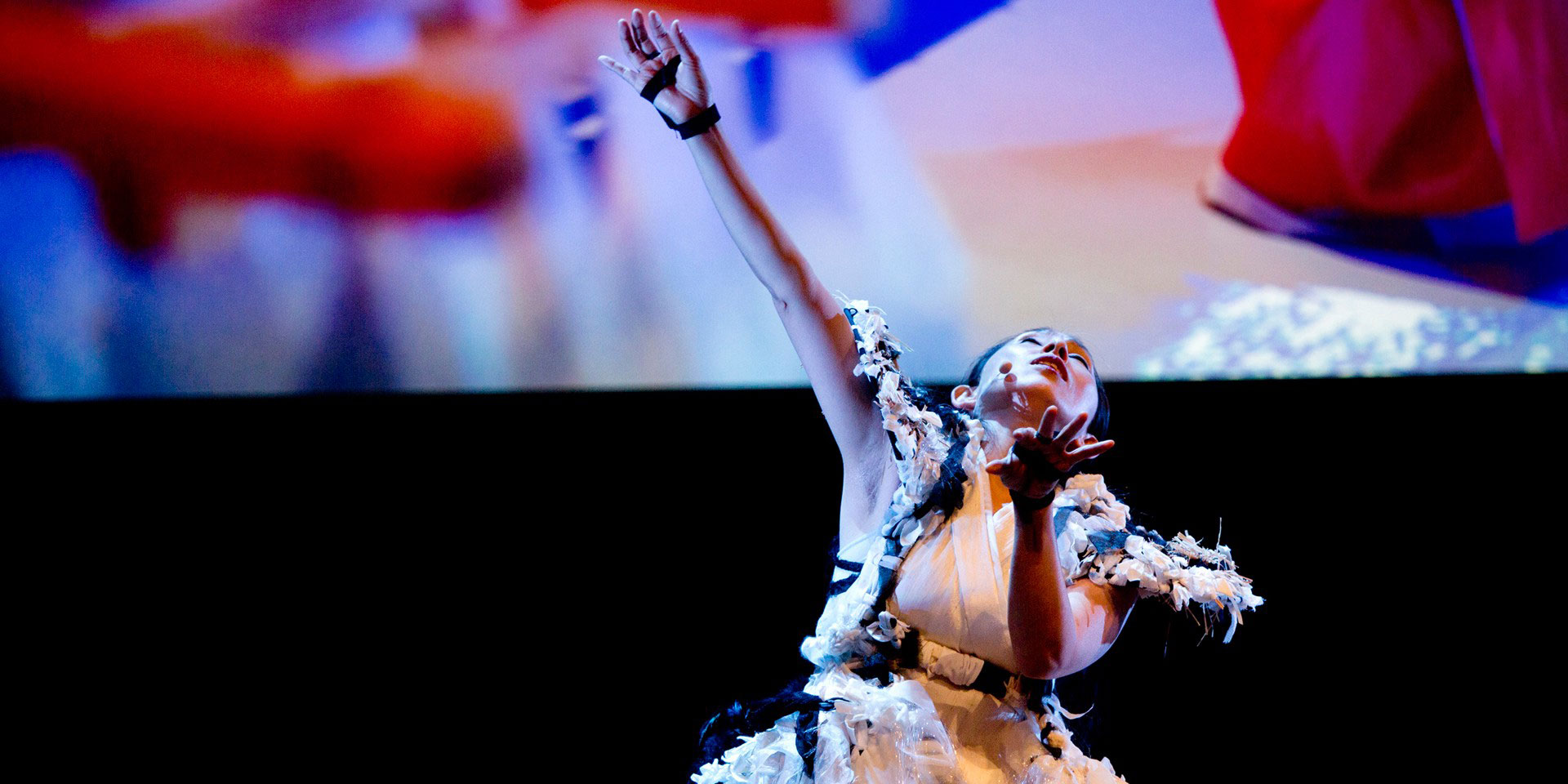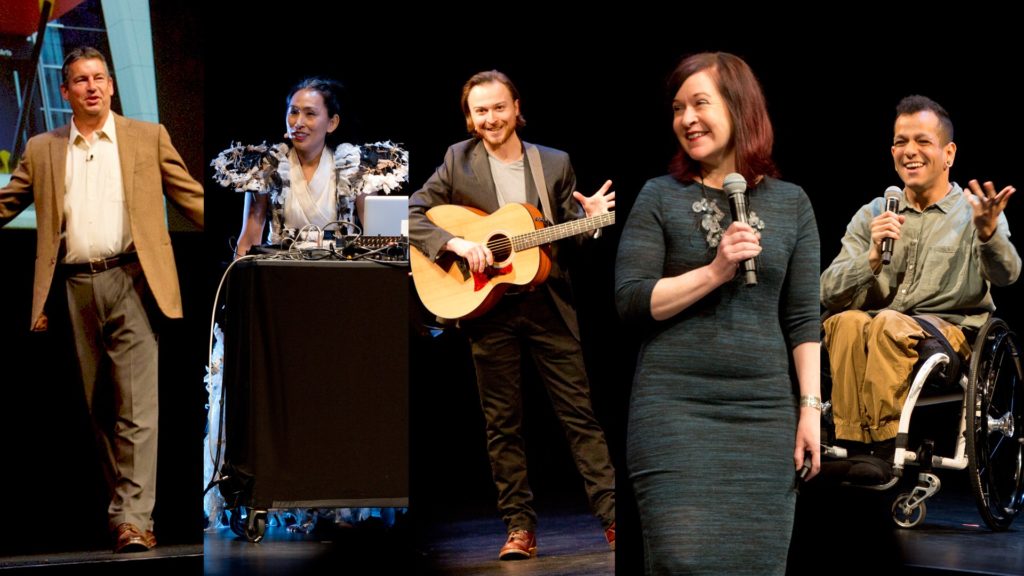Mon April 29th Closed
The Music Is the Medicine

I’ll never forget the moment at the 2016 YBCA 100 when Alicia Garza, co-founder of Black Lives Matter, spoke in conversation with their partner, Malachi Garza. They asked us to reflect on the question, What does love look like in practice? And offered an open-armed answer. We need the kind of love that breaks rules when the rules are wrong, that pushes against the sense that “nothing is possible,” that obliterates our rising nihilism. They urged us to develop a revolutionary vision, and in the process expand what is possible.
I left that conversation with a sense that we were at the beginning of a sea change in which art will have a central role, and that each and every one of us has a place at the table. I felt the same expansion and clarity at YBCA’s The Art of Health Symposium, held April 2 at the Blue Shield of California Theater.
“An art center can be, maybe even should be, an incubator of good health, for individuals, communities, cities, and societies.”
In a way, it is a simple thesis. Art — in all its forms, practices, shapes, colors — buoys, strengthens, and boosts our well-being, our health, our vitality of spirit. Said another way, the music is the medicine. Said yet another way, an art center can be, maybe even should be, an incubator of good health for individuals, communities, cities, and societies. And because each of us will at some point face health challenges, because each of us will care for loved ones in that same process, the message resonated at the hum of humanity, beyond or maybe underneath everyday divisions, into the realm of what we all deserve on this Earth.

The Art of Health Symposium speakers: Terry Gilliland, Dohee Lee, Matthew Logan, Deborah Cullinan, JanpiStar
Korean artist Dohee Lee kicked off the event by inviting us to breathe and then sing together. Through ethereal, otherworldly vocal turns, she lit the shamanistic story of sound as healer. Terry Gilliland, chief health officer of Blue Shield of California, told a deeply personal story about how yoga and movement lived at the core of his recovery from cancer. Music therapist and keynote speaker Matthew Logan showed us how he harnesses music to help infants learn to breastfeed, to allow sick children the space to just be kids, and to empower teenage cancer patients to find their voices.
AXIS Dance Company, whose mission is to change the face of arts and disability, ended the symposium with two powerful storytellers. AXIS artistic director Marc Brew gave us lightning truth and instant expansion. “Who here has a body?” he asked. “If you have a body, you can dance.” Then JanpiStar, an AXIS company dancer, told us about the accident that left him paraplegic and how his love of Britney Spears and Christina Aguilera videos led him to a love of dance. He studied with masters and followed his passion all the way from Puerto Rico to Oakland as part of AXIS. His spirit is indomitable, and he shone on stage in a live piece that had me in tears.
“In all honesty, I cried four times that morning—but the good kind of tears, where you feel the fullness of human potential and the visceral truths that connect us all.”
Framing the entire event were the words of Deborah Cullinan, YBCA CEO, and Jonathan Moscone, YBCA chief producer, who talked about why the seemingly disparate worlds of art and health belong together, and why YBCA is just the place for this combustion.
Ask any artist why they make art, and they’ll likely respond with something to the effect of, “Because I have to. Without it, I crumble.” Read backward, it becomes, “With art, I build myself.” I’m truly excited to see what YBCA cooks up under this new thematic arc. I hope that through it, we build ourselves, our communities, our strength, our power, our wellbeing, and one another. May everyone who walks through these doors sense their place at the table.